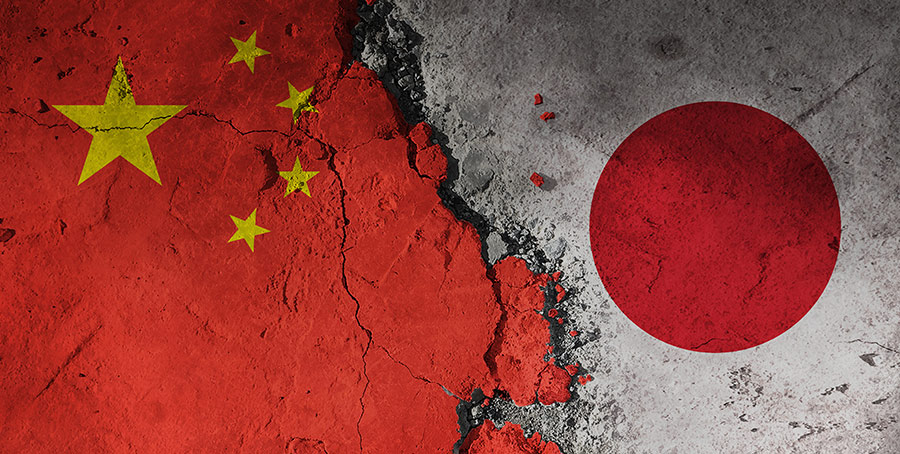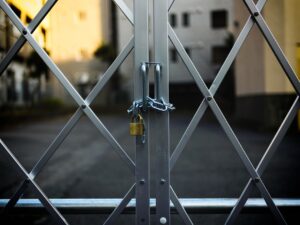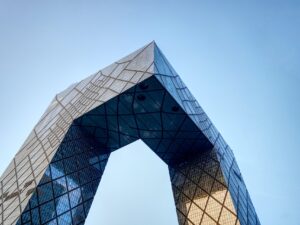
Anti-Japanese sentiment has been rising in China since the Fukushima nuclear power plant began discharging contaminated water into the ocean on March 24. A number of group tours of Japan have been cancelled by Chinese tourists, and stores are hiding advertising copy and trade names associated with Japan. A “boycott list” of Japanese products has begun to appear on Weibo, China’s social networking service (SNS). The Japanese embassy in China is urging its citizens not to speak Japanese out loud.
[Photo] A waiter hides the words “Japanese craftsmanship” posted on the window at a sushi restaurant in Tianjin.
Across China, cancellations of reservations for group tours to Japan are on the rise. According to a report in the Chinese media “Daiichi Zaikei” on the 26th, on the same day, banners advertising Japan tours were moved out of sight on major Chinese online travel sites such as Ctrip, Tuninu, and Lvmama. An official at a major Chinese travel agency said, “In the past few days, the number of cancellations of group tours to Japan has increased significantly,” and “Customers who had planned to visit Japan during the National Day holiday (October 1) have started to leave. Chinese group travel to Japan has been banned since January 2020 due to the new coronavirus infection, but was resumed on October 10 this month. Chinese accounted for about 30% (9.59 million) of foreigners who visited Japan in 2019 before the new coronavirus disaster.
There is also a movement in China to boycott Japanese products. On Weibo, a list of Japanese food, cosmetics, and childcare products that are considered harmful to the human body was spread on the 27th. One person posted, “There should be a nationwide boycott of Japanese products in order to retaliate against Japan. Japanese restaurants and fish restaurants in Beijing posted signs at their entrances stating that they do not use Japanese seafood and that they only use seafood from China, including Dalian and Fujian. A sushi restaurant in Tianjin covered the words “Japanese craftsmanship” on the inside of its window with paper.
On the 24th, when the discharge of contaminated water into the ocean began, the Japanese Embassy in China called for caution among its own citizens in China, saying, “Although we have not confirmed any cases of Japanese nationals being involved in trouble in China, we cannot dismiss the possibility that unforeseen situations may occur. On the 25th, the group called for caution to “not carelessly speak Japanese loudly when going out. The Japanese embassy also requested the Chinese government’s cooperation in the face of indiscriminate phone attacks against Japanese nationals and Japanese organizations in China. The Japanese embassy also postponed a concert by a Japanese pianist that was scheduled to be held on the 26th in case of emergency.
Some are concerned that the large-scale anti-Japanese demonstrations that occurred in China after Japan’s declaration of its nationalization of the Senkaku Islands (Chinese name: Diaoyu Islands) in 2012 may return. At that time, anti-Japanese demonstrators damaged property at more than 10 Japanese factories in China and set fire to Japanese automobile dealerships. However, since Japan’s discharge of contaminated water into the ocean was not aimed at a specific nation, and the Chinese government does not want a “contaminated water panic” among its own citizens, the possibility of an extreme situation like that occurring is considered to be low.
Beijing=Li Borchan, Correspondent
Chosun Ilbo







